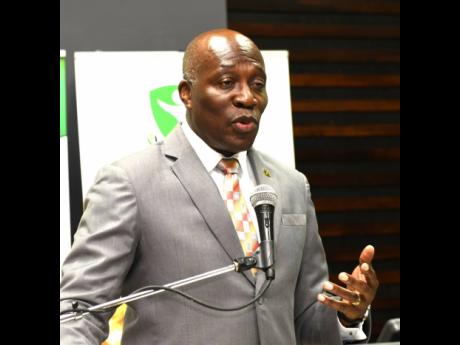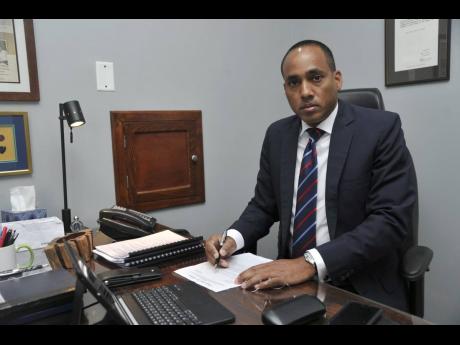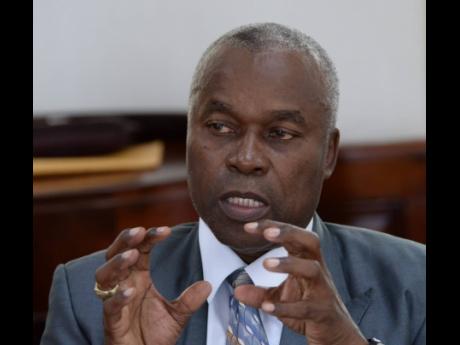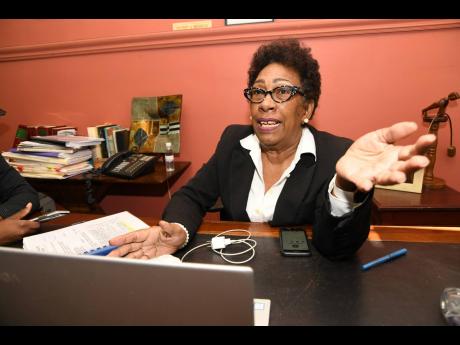COVID-19 no excuse to halt jury trials, lawyers tell chief justice
Several prominent defence lawyers are raising strong objections to any attempt to halt jury trials because of COVID-19 and replace them with trial by judge alone.
Any decision for bench trials must be solely that of an accused person, the attorneys advised.
They were responding last week to comments recently by Chief Justice Bryan Sykes that the law makes provision for the use of bench trials, but a number of defence lawyers were unwilling to use that provision in the law.
The chief justice stressed that “unless they rethink some of the ideas they have, they are going to be actively involved in violating the constitutional rights of their clients, which is the right of a fair trial within a reasonable time”.
He said also that the only trial that still needed a jury was a murder case in which the death penalty was an issue, and that was a small percentage because 99 per cent of the cases can be tried by judge alone.
Jury trials in the nation’s courts have been suspended because of COVID-19 restrictions. However, attorney-at-law Bert Samuels said the pandemic cannot be an excuse to take such drastic measures.
“Trial by jury for serious offences has become part of the fundamental rights of the citizens of Jamaica,” he told The Sunday Gleaner.
“We won adult suffrage in 1944 where women and all others without money and property could be electors and thereby become jurors; this was hard fought for and won. Paul Bogle and William Gordon, who were tried not by their peers, gave their lives for this justice system which includes jurors.”
RETROFIT COURTROOMS
Samuels pointed out that, “The courtrooms can be retrofitted to maintain social distancing between seven jurors, so this makes the COVID-19 excuse a non-excuse.”
He said that those who were against the jury system spoke out long before COVID-19, “so the real reason is not COVID-19, it is a long-standing anti-jury position which has resurfaced under the guise of COVID-19”.
Samuels emphasised that, “Trial by jury for serious offences is part of our democratic system which relies on the collective wisdom of seven jurors who, as fact finders, are superior to any single judge.”
Queen’s Counsel Valerie Neita Robertson said the whole jurisprudence and fairness are built upon the principle that no one person can defend justice because each person has different experiences. She said there was a need to educate the people on how to vote on issues because many of them do not know how to do so.
When the offence is not so serious, she believes that there can be a trial by judge alone, but murder cases should be tried by a jury.
Neita Robertson is adamant that if an option is to be exercised as to whether a trial should proceed by judge alone, then such a decision should be exercised by an accused person.
She also shares the view that courtrooms can be retrofitted to facilitate jury trials, in keeping with COVID-19 protocols.
ORDER OF THE DAY
Queen’s Counsel Peter Champagnie disclosed that there was undoubtedly a resistance by the defence Bar to embrace bench trials.
“Candidly, there are two reasons for this position. First, there existed the fear before the pandemic that there would be an abolition of jury trials. Therefore, to adopt bench trials at this stage may be seen as giving in to this position, where with a post-COVID era, Parliament may want bench trials to be the order of the day,” Champagnie stated.
“Second, there is a perception that there is a greater risk of conviction with a bench trial as opposed to a jury trial. However, in relation to this latter point, I am prepared to wager that the statistics do not support this one. One only has to look at the rate of conviction in the Gun Court where serious offences are tried by judge alone and see that the conviction rate is not high.”
Commenting further, he said that even in jury trials, it can be said that in many instances the ultimate determination of the case goes back to the sitting judge when a no-case submission is made. All things considered, he noted, there were many instances when a bench trial would be more in the interest of the accused, so one should not be so dismissive of it.
He cautioned, of course, that a bench trial was subject to the final wish of an accused, while urging attorneys to give a fulsome view of the advantages and disadvantages of each method of trial.
“We cannot have a one-sided and negative view of bench trials, as some of us seem to have,” he added.
Champagnie conceded that retrofitting the courts to accommodate social distancing with a jury trial was worthy of consideration.
“Jury trial is still part of the law of Jamaica, contrary to views expressed elsewhere,” noted attorney-at-law Hugh Wildman.
“Parliament has not abolished the right to jury trials, so as far as I am concerned, persons charged with serious offences and wish to be tried by jury should be afforded that right.”




